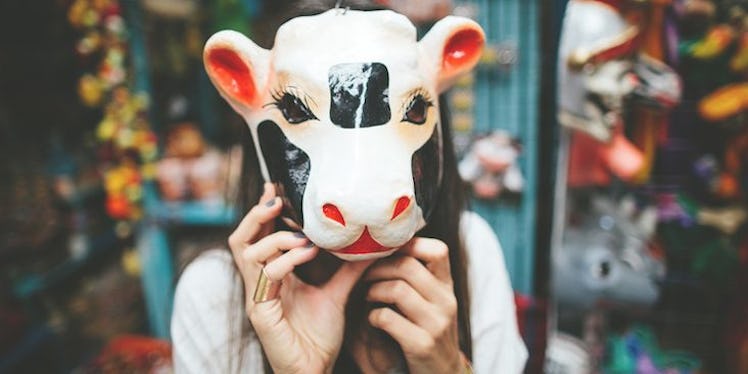
This Is The Weird Reason Science Says You Should Pretend To Be Someone Else
Sometimes, I like to pretend I'm Rory Gilmore.
First of all, if you hate on Rory for whatever reason, just know I haven't made my way through every season of Gilmore Girls yet, so with my current knowledge, I see no reason to hate her (other than her sort-of-bad taste in men, but hey, she's young; give the girl a break).
As far as I'm concerned, she's a beautiful, relatable girl with whom I've always shared similarly uncommon interests, like reading and writing.
Plus, I can't help but admire her (and, of course, her mother's) quick wit.
I've always found navigating nearly any difficult situation under Rory's guise made the experience significantly less stressful.
But, at the same time, I always worried it might be unhealthy for me to channel someone else's personality so often.
Well, it turns out, I've actually been onto something.
A recent column in Harvard Business Review highlighted the importance of "unfocusing," and more specifically, the results of a study demonstrating something called the "stereotype effect."
In the study, education psychologists Denis Dumas and Kevin Dunbar divided their participants into three different groups: One group was told to imagine themselves as "eccentric poets," another group was told to think of themselves as "rigid librarians," and the third set of subjects weren't given any such directions (making them the control group).
Then, each person was presented with several different bland objects, such as a carrot, a fork, and a pair of pants. The researchers asked the subjects to think of as many different ways to use each object as they could.
The "eccentric poets" came up with the most ideas, while the "rigid librarians" struggled the most in coming up with different uses for each object.
What's particularly striking about these results is that they portray creativity not as a trait that you either have or don't have, but as something that can be shaped depending on the context.
No one is necessarily a "creative person;" creativity can really be harnessed by anybody, according to these results.
Psychiatrist Srini Pillay calls this exercise of pretending to be someone else "psychological halloweenism," which surprisingly doesn't refer to a psychological disorder in which you can't stop dressing up in Halloween costumes (but wouldn't that be fascinating?!).
Pillay describes it as a kind of "conscious unfocus," in which we're stimulating a part of the brain that's only active when you're not actually focused on a certain thought or task.
By allowing that sort of underused part of the brain to do its thing, we manage to think and behave more creatively than we normally would.
Pillay even recommends that employers allow their workers to occasionally indulge in some psychological halloweenism, as he believes it could help them feel more engaged in their day-to-day responsibilities.
So, the next time you're feeling particularly sluggish at work, maybe try channeling someone who gets sh*t done, like Rory Gilmore, or even a real-life #girlboss, like Sophia Amoruso.
Happy daydreaming!
Citations: Pretending You're Someone Else Can Make You More Creative (New York Magazine), Your Brain Can Only Take So Much Focus (Harvard Business Review), The Creative Stereotype Effect (National Center for Biotechnology Information), Solving the Engagement Conundrum Through Brain Science (Entrepreneur)